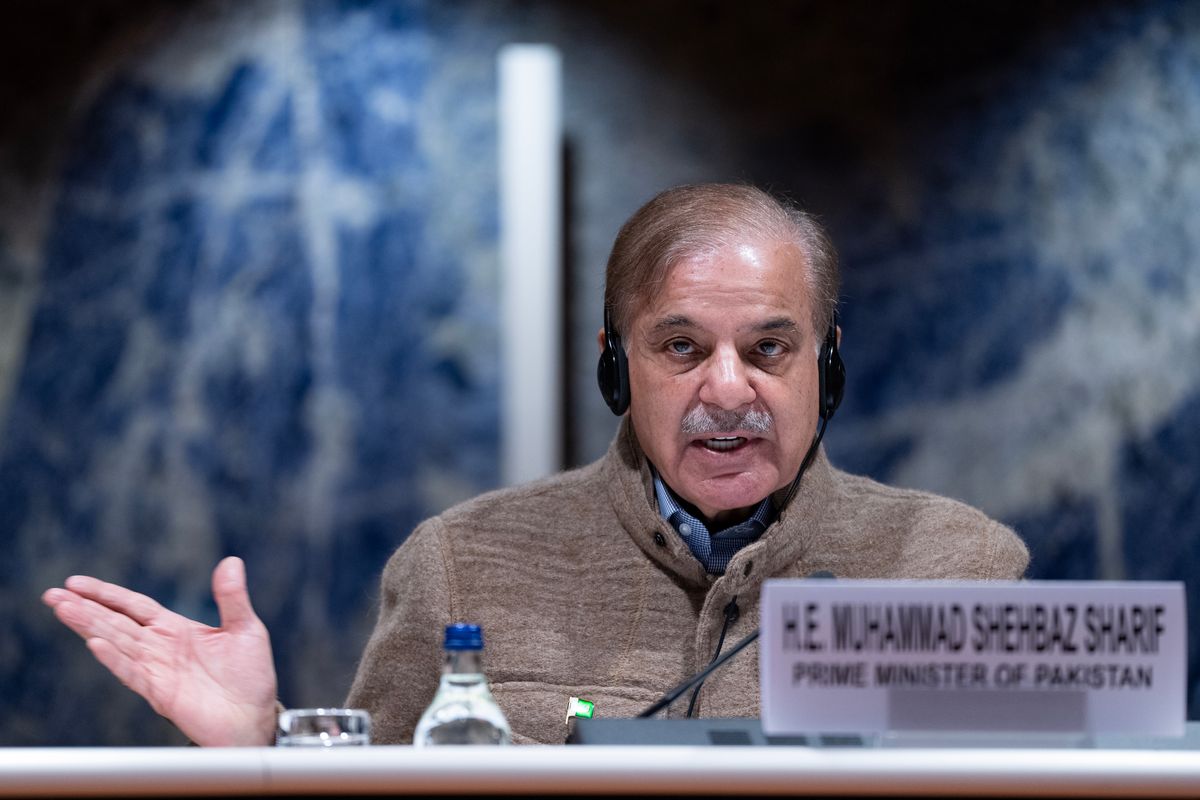Pakistan Pays in Chinese Currency for Discounted Russian Oil

The Lede: Pakistan made its initial government-to-government purchase of discounted Russian crude oil using Chinese currency, State Minister for Petroleum Musadik Malik said this week, marking a departure from Pakistan's previous practice of conducting export payments primarily in U.S. dollars.
What we know:
- On Sunday, the initial shipment of discounted Russian crude oil, part of a previously established agreement between Islamabad and Moscow, arrived in Karachi, the largest city in Pakistan, Reuters reported. Currently, the cargo is being unloaded at the port in Karachi, situated in the southern region of the country.
- During a telephone conversation with Reuters, Petroleum Minister Musadik Malik refrained from revealing specific commercial information about the deal, such as pricing or the discount granted to Pakistan. But, he confirmed that the payment was made in Chinese currency.
- The purchase that was sealed back in April, involved a total of 100,000 tons, with 45,000 tons already at Karachi port, while the remaining amount is in transit.
- State Minister for Petroleum also told Reuters that based on tests and trials the Russian crude is suitable for refining and local marketing, noting they are sure “it will be commercially viable."
The background: Over the past year, Pakistan, the South Asian nation with a population of 220 million has experienced a stagnation in economic growth and a significant rise in inflation. Pakistan's currency, the rupee, has undergone a sharp depreciation, while its foreign currency reserves have been depleting, leading to challenges in importing essential goods, including food. Now as Pakistan grapples with an economic crisis and a severe balance of payments issue that puts it at risk of defaulting on external debt, the availability of discounted crude oil provides some relief.
Meanwhile in Russia, the U.S. and its allies have implied economic sanctions as part of the strategy to deprive Kremlin of the necessary funds for supporting invasion of Ukraine. These sanctions specifically target Russian crude oil, recognizing its significance as a vital aspect of the country's economy. Russia has ramped up its efforts for dedollarization and teamed up with Beijing which, in turn, is on a mission to strengthen the position of the yuan as a widely used currency, challenging the prevalent dominance of the U.S. dollar. Chinese buyers seized the opportunity to acquire discounted Russian crude oil, coal, and aluminum. This resulted in a significant surge in commodities imports from Moscow, with a remarkable 52% increase in 2022. The total value of these imports amounted to $88.3 billion. As of April, the Chinese yuan has surpassed the U.S. dollar in terms of trading volume and has emerged as the dominant currency in Russia.
Likely outcomes/Takeaway:
- The recent development seems to be mutually beneficial. As Russia redirects its oil exports away from Western markets amid the ongoing war in Ukraine, Pakistan provides Moscow with an additional avenue to expand its sales, joining the growing list of customers like India and China. This move also aligns with Pakistan's efforts to navigate an ongoing economic crisis characterized by a stagnant growth rate, high inflation, and a severe balance of payments problem.
- The cooperation between Russia and China in the energy sector, with Pakistan as a recent participant, showcases the evolving dynamics of global economic relationships. As countries seek alternative avenues to navigate economic challenges and reduce reliance on traditional currencies, the strategic choices they make can have significant implications for global financial systems and power dynamics.
- Pakistan’s decision adds to the ongoing trend of utilizing the yuan as a means of settling international trade deals, which could indicate its rising significance.
Quotables:
- “Today is a transformative day. We are moving one step at a time toward prosperity, economic growth and energy security & affordability. This is the first ever Russian oil cargo to Pakistan and the beginning of a new relationship between Pakistan and Russian Federation,” Shehbaz Sharif, Prime Minister of Pakistan wrote in a tweet.
- "This is normal trade cooperation between Pakistan and Russia and within the scope of their sovereignty,” China’s Foreign Ministry told Reuters. "As a matter of principle, we are open to the settlement of crude oil trade in RMB.”
- "We're looking to target one-third of our total oil imports at the Russian crude," Musadik Malik Pakistan’s State Minister for Petroleum.
Good Reads:
Exclusive: Pakistan paid in Chinese currency for discounted Russian oil – minister (Reuters)
Russia and China Step Up Effort to Challenge Dollar with the Yuan (China Paper)
Pakistan’s Economic Crisis: What Went Wrong? (the Diplomat)
